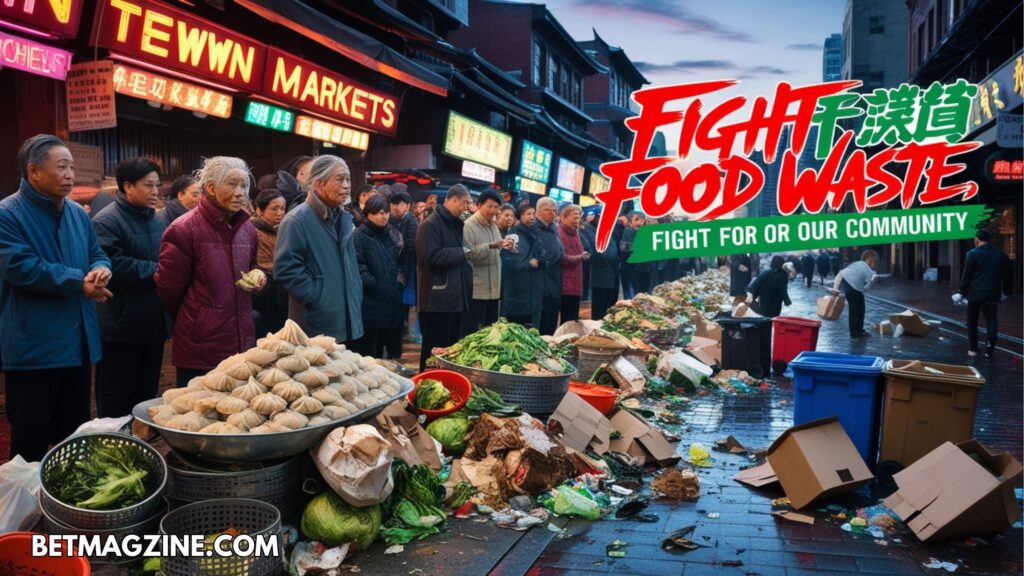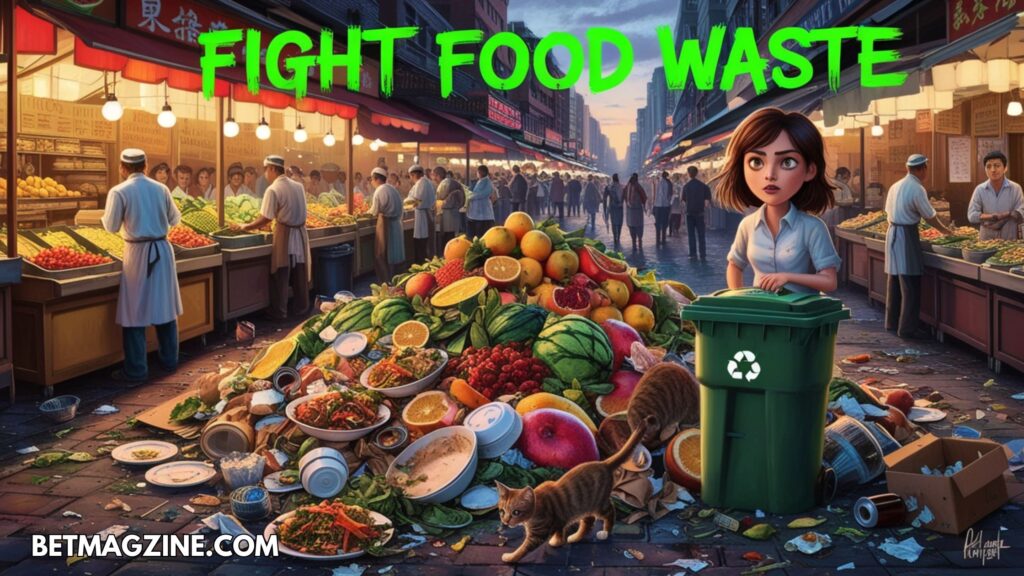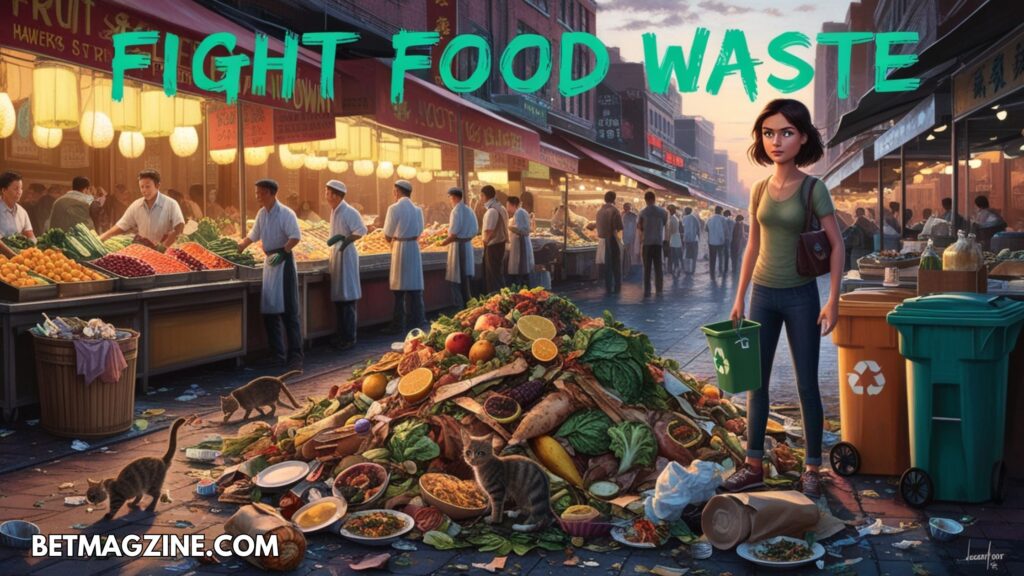Food waste is a growing problem in Chinatown. See what’s really happening with hawker leftovers—and how you can help fight back today.
Chinatown Hawker Leftovers Consumption
How Food Left Behind Can Be a Big Topic
Introduction: Why Talk About Leftovers in Chinatown Hawker Centres?
Chinatown is a place full of tasty food, smiling people, and busy streets. One of the best things to do there is eat at a hawker centre. These are open food courts with many small stalls selling all kinds of dishes.
But there’s a problem—leftovers.
Many people do not finish their meals. They leave food on the table or throw it in the trash. This food is called leftovers, and in Chinatown hawker centres, it is becoming a big concern.
In this article, we will talk about:
- What are Chinatown hawker leftovers
- Why people leave food behind
- What happens to the leftovers
- How this affects people and the planet
- What we can do to fix the problem

What Are Hawker Centre Leftovers?
Leftovers are the food people do not eat after buying a meal. At Chinatown hawker centres, this can be rice, noodles, meat, vegetables, soup, and more.
These leftovers are not from cooking mistakes. They are what customers leave behind after they are done eating.
Sometimes the food is untouched. Other times, it is half-eaten.
This leftover food is collected and usually thrown away.
Why Do People Leave Food Behind?
Here are some common reasons why people leave food behind:
1. Big Portion Sizes
Some meals are too big. People order one dish but get too much food.
2. Too Many Dishes
Many people like to try different things. They order 3 or 4 plates, but can’t finish them all.
3. Taste Is Not What They Expected
Maybe the food is too salty, too spicy, or just not their favorite.
4. Eating in a Hurry
People may eat fast and leave the rest behind when they are done.
5. Sharing Gone Wrong
When groups share food, sometimes no one finishes certain items.
What Happens to the Leftovers?
Most of the time, leftovers go straight to the trash. Here’s how it works:
- A cleaner clears the table.
- The food is thrown into a big bin.
- Later, the bin goes to a landfill or is burned.
This food waste becomes a big problem. Here’s why:
1. Wasted Resources
Growing food takes water, land, and time. Throwing food away wastes all of that.
2. Bad for the Environment
Food in landfills makes gas called methane. This gas warms the planet.
3. Costs Money
Food waste costs money to clean up and get rid of.
How Much Food Is Wasted in Chinatown?
It’s hard to count every leftover, but experts say:
- Singapore wasted around 800,000 tons of food in one year.
- A big part of that waste comes from hawker centres and homes.
In busy places like Chinatown, the number is even higher.

Why This Problem Matters
Wasting food is not just sad—it’s dangerous. Here’s why it matters:
1. Hunger Still Exists
While food is wasted, some people don’t have enough to eat.
2. Hurts the Earth
The earth can’t keep up if we keep wasting food and resources.
3. Costs Everyone
More waste means more cleanup. That means more tax money spent.
Who Is Trying to Help?
Good news! Some people and groups are trying to fix this problem.
1. Hawkers
Some food stall owners give smaller portions or let customers choose how much they want.
2. Charities
Food charities take extra food that is safe and give it to people in need.
3. Apps
Some phone apps connect people with leftover food so it doesn’t go to waste.
4. Government
The Singapore government is working on food waste laws and education.
Smart Ideas to Reduce Leftovers
Here are some simple tips that can help:
1. Ask for Less
Order a smaller portion if you are not very hungry.
2. Share Smartly
Only order what your group can finish.
3. Take It Home
Bring a container or ask for one. Eat the rest later.
4. Try Before You Buy
Some stalls let you try a small bite. That way you know you’ll like it.
5. Talk About It
Teach kids and friends why wasting food is bad.
Can Leftovers Be Used Again?
Some people ask, “Can we use these leftovers?” The answer is tricky.
- If food is untouched, it might be safe to share.
- But if food is half-eaten, it is not safe to reuse.
Food safety is very important, so only some leftovers can be saved.
What Hawker Centres Can Do Better
Hawker centres are part of the solution too. Here are a few ideas:
- Use signs to teach about food waste
- Offer small, medium, and large sizes
- Give discounts for bringing your own container
- Help food rescue groups collect safe leftovers
How You Can Help Today
You don’t need to wait for a law to change. You can help today by:
- Not wasting your food
- Telling your friends and family
- Helping food donation drives
- Using apps that help save leftovers

Conclusion: Every Bite Counts
Chinatown is a great place full of good food and culture. But it also shows us the big problem of food waste.
“Chinatown hawker leftovers consumption” is not just about food—it’s about how we treat the world. Every person can help by eating smart, wasting less, and caring more.
Every bite counts. Let’s make sure no food is left behind.
People Also Ask (PAA)
What are Chinatown hawker centres known for?
They are known for their low-cost, tasty local food and busy stalls.
Why is food waste a problem in hawker centres?
Because many people leave behind food, leading to waste of resources and harm to the planet.
Can leftover food be donated in Singapore?
Yes, if it is safe and untouched. Some groups collect leftover food and give it to those in need.
How can I help reduce food waste?
Order only what you can eat, take leftovers home, and support groups that fight food waste.
Frequently Asked Questions (FAQs)
Q: What is “chinatown hawker leftovers consumption”?
A: It means how much leftover food is created and thrown away at hawker centres in Chinatown.
Q: Why should we care about leftover food?
A: Leftover food wastes money, resources, and hurts the planet. It also shows we are not being fair to people who don’t have enough to eat.
Q: Who is responsible for food waste?
A: Everyone—from people eating to those cooking, cleaning, and selling food.
Q: What can businesses do about food waste?
A: Give portion options, educate customers, work with food rescue groups, and help collect safe leftovers.
Q: Are there apps to reduce food waste in Singapore?
A: Yes! Apps like Treatsure and Olio help people find leftover food and share extra meals.



